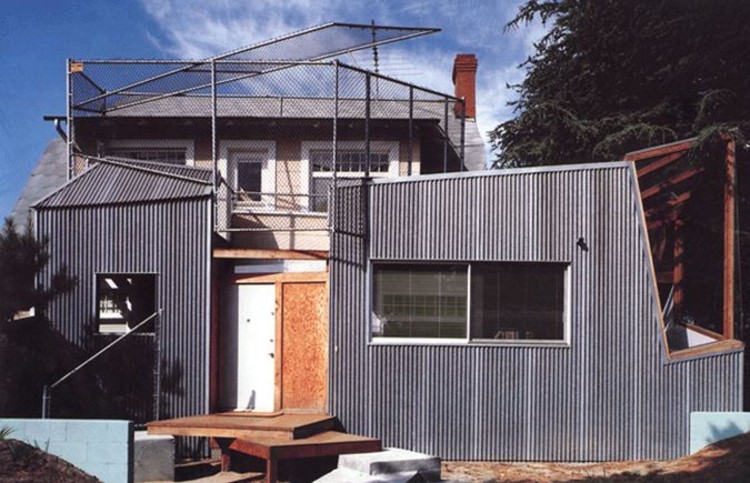128
Gehry Residence
Author: Frank Gehry
Year: 1978 Edit Add
Book: Postmodernism, or, The Cultural Logic of Late Capitalism
Gehry Residence
Author: Frank GehryYear: 1978 Edit Add
Book: Postmodernism, or, The Cultural Logic of Late Capitalism
The cognitive and representational problem comes when we try to combine that palpable reality with the equally unquestionable other representation of the United States that inhabits a different and unrelated compartment of our collective mind: namely, the postmodern United States of extraordinary technological and scientific achievement; the most "advanced" country in the world, in all the science fictional senses and connotations of that figure, accompanied by an inconceivable financial system and a combination of abstract wealth and real power in which all of us also believe, without many of us ever really knowing what that might be or look like. These are the two antithetical and incommensurable features, then, of abstract American space, of the superstate or multinational capitalism today, which the cube and the wall mark for us (without offering representational options for them). The problem, then, which the Gehry house tries to think is the relationship between that abstract knowledge and conviction or belief about the superstate and the existential daily life of people in their traditional rooms and tract houses.
The cognitive and representational problem comes when we try to combine that palpable reality with the equally unquestionable other representation of the United States that inhabits a different and unrelated compartment of our collective mind: namely, the postmodern United States of extraordinary technological and scientific achievement; the most "advanced" country in the world, in all the science fictional senses and connotations of that figure, accompanied by an inconceivable financial system and a combination of abstract wealth and real power in which all of us also believe, without many of us ever really knowing what that might be or look like. These are the two antithetical and incommensurable features, then, of abstract American space, of the superstate or multinational capitalism today, which the cube and the wall mark for us (without offering representational options for them). The problem, then, which the Gehry house tries to think is the relationship between that abstract knowledge and conviction or belief about the superstate and the existential daily life of people in their traditional rooms and tract houses.
 Log-in
Log-in Source type: picture
Source type: picture